The CMP Review — Week of March 18
March 18, 2024
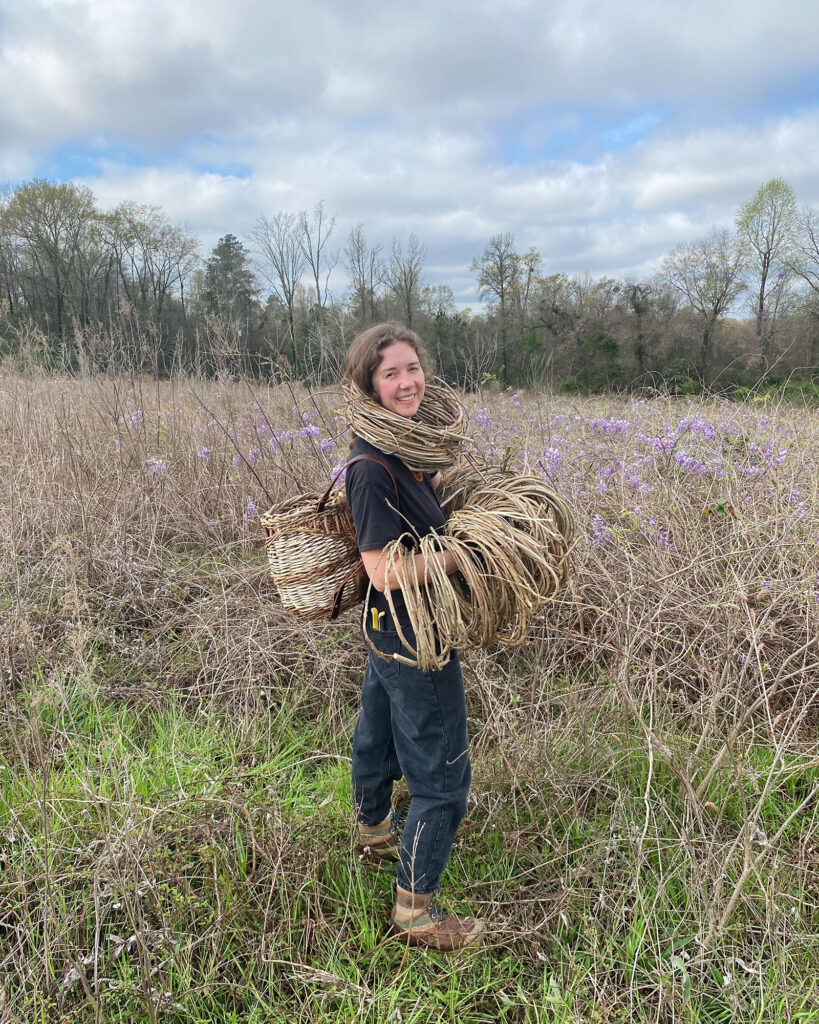
I have been out to play gathering weaving material for making baskets. The Parents’ Review describes it as a “pleasant art,” and it’s one way I’ve been following Charlotte Mason’s advice:
If mothers could learn to do for themselves what they do for their children when these are overdone, we should have happier households. Let the mother go out to play! If she would only have courage to let everything go when life becomes too tense, and just take a day, or half a day, out in the fields, or with a favourite book, or in a picture gallery looking long and well at just two or three pictures, or in bed, without the children, life would go on far more happily for both children and parents. (Vol. 3 pp. 33-34)
Using invasive plants, I wove the backpack I am wearing here out of kudzu, and I harvested Chinese wisteria for future baskets. Do you have “pleasant art” that gives you a happier household?
@tessakeath
March 19, 2024
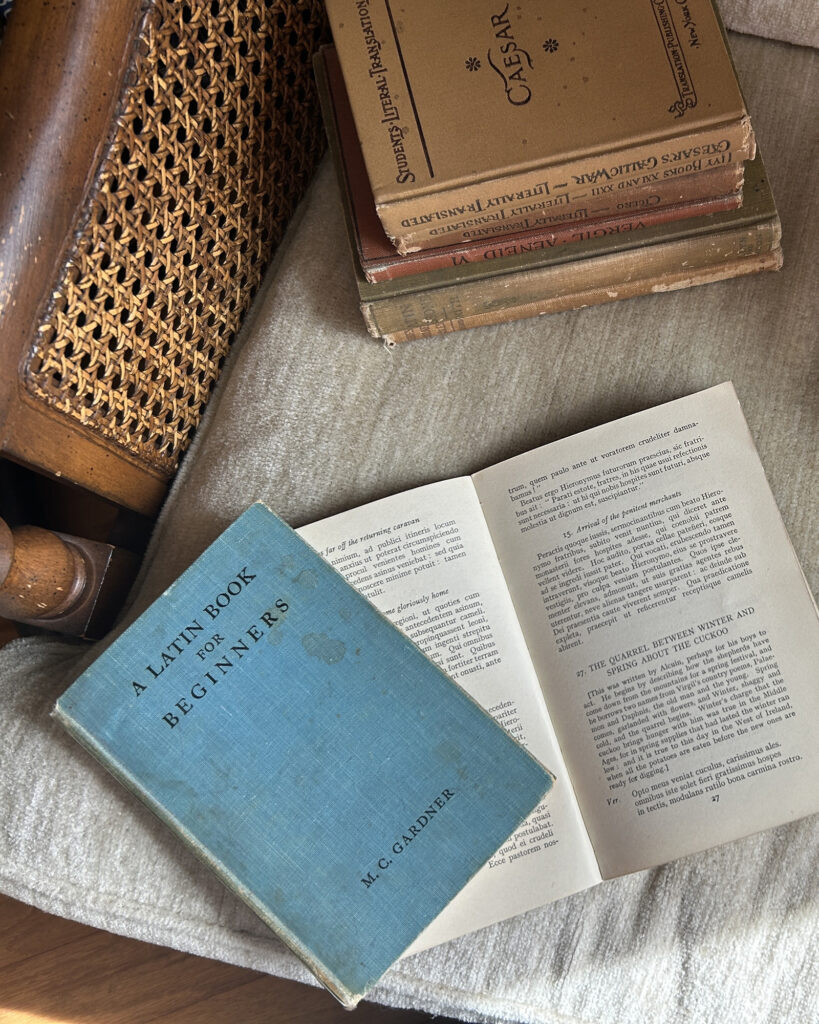
I have long sought to understand the role of Latin in the Charlotte Mason method. Did Miss Mason assign the language in her programmes due to contextual factors specific to her time? If so, then one would expect references to Latin to gradually fade from view in the PNEU literature over time.
So I attempted to follow the trail of Latin. I followed it through the year that The Parents’ Review changed its name. That was 1966, when the editor of Mason’s flagship journal wrote, “In the second half of the twentieth century changes of all kinds are taking place more rapidly than during any similar period known to man, so that it seems appropriate that we should during the second half of this year 1966, make a change in the general appearance of our magazine.” And so The Parents’ Review became The PNEU Journal. Was that the time for Latin to go away too?
With eager curiosity I paged through volume after volume of The PNEU Journal at the national library. When I reached volume 9, I found what I was looking for. Dated 1973, the article I discovered was written fifty years after the death of Charlotte Mason and published fifty years before the date I was reading it. In this little gem in Charlotte Mason’s journal, the author asked and answered the questions many of us still ask today.
I shared the article and my other findings with Angela Reed who kindly agreed to write a detailed editor’s note summarizing the story of 100 years of Latin in the PNEU. But it is no mere history lesson. Just like Latin itself, it is a story that can be our story too — if we open our hearts and minds to the elegant tongue. Read or listen here.
@artmiddlekauff
March 20, 2024
Lost and Found.
This 1929 color atlas was spotted in an antique shop seven years ago. A few days later I went back to get it and the vendor had taken it to the Brimfield Antiques Show—never to return.
I have few regrets in my life, but not purchasing this book was one of them.
A few days ago my sister texted me a few images of the same book, which I didn’t see until after she had left the shop. I called the dealer to ask if he would hold it for me—knowing this might very well tip him to look a bit more closely at what was in his possession.
It had, but he generously offered it to me at his original price, for which I’m grateful. The book is Munsell Book of Color, in which Albert H. Munsell combines the art and science of color into a common language that is still in use today. Applications range from rock and soil classification, preservation of the Dead Sea Scrolls, to artists finding the perfect color match.
Share some of your favorite lost and founds in the comments!
@rbaburina
March 21, 2024
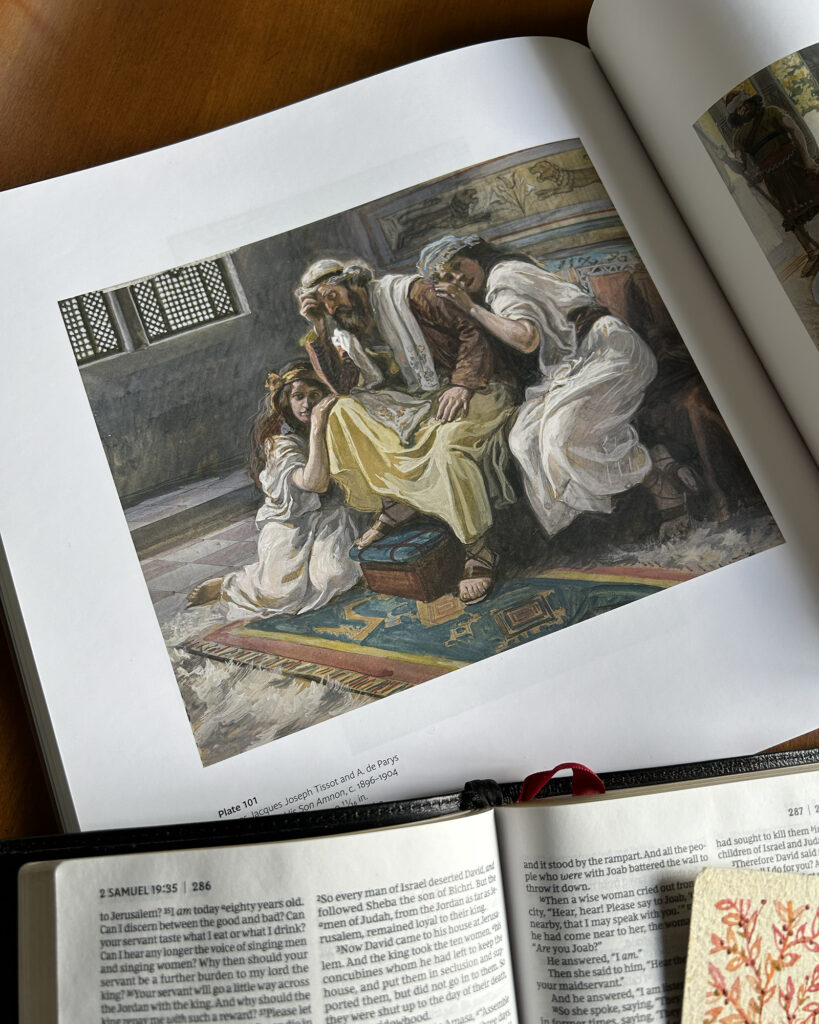
The first step in a Bible lesson is what I call “connection.” House of Education graduate Miss Bruce-Low describes it this way: “First of all the previous lesson is recapitulated by the children, and then the teacher connects it with the present lesson.” This step is essential to form what Mason calls a “chain of association,” and “where there is no chain of association to draw the bucket out of the well, it is all the same as if there were no water there.”
So my habit is to begin each Bible lesson by asking my son what we covered last time in this book (Old Testament or New). He recalled our study of 2 Samuel 19 and expressed with some emotion that David had appointed Amasa over the army, replacing Joab. I picked up on the emotion and reminded him what the commentary had said: “This move would be as if President Lincoln had invited Robert E. Lee to replace Ulysses S. Grant at the conclusion of the American Civil War.”
“It’s not just that,” my son insisted. “It’s that the general being replaced was *Joab*. I would not want to replace Joab! I bet in the next chapter Joab kills Amasa.”
In my 2022 Bible Lessons FAQ I wrote, “The other aspect of the connection is the look forward. Obviously, this can’t be done by the students since they don’t yet know what the next lesson is about. Only the teacher knows.”
I see now that is only partially true. Never underestimate the Holy Spirit who is teaching a person. Sometimes it’s not only the teacher who knows what’s coming next.
@artmiddlekauff
March 22, 2024
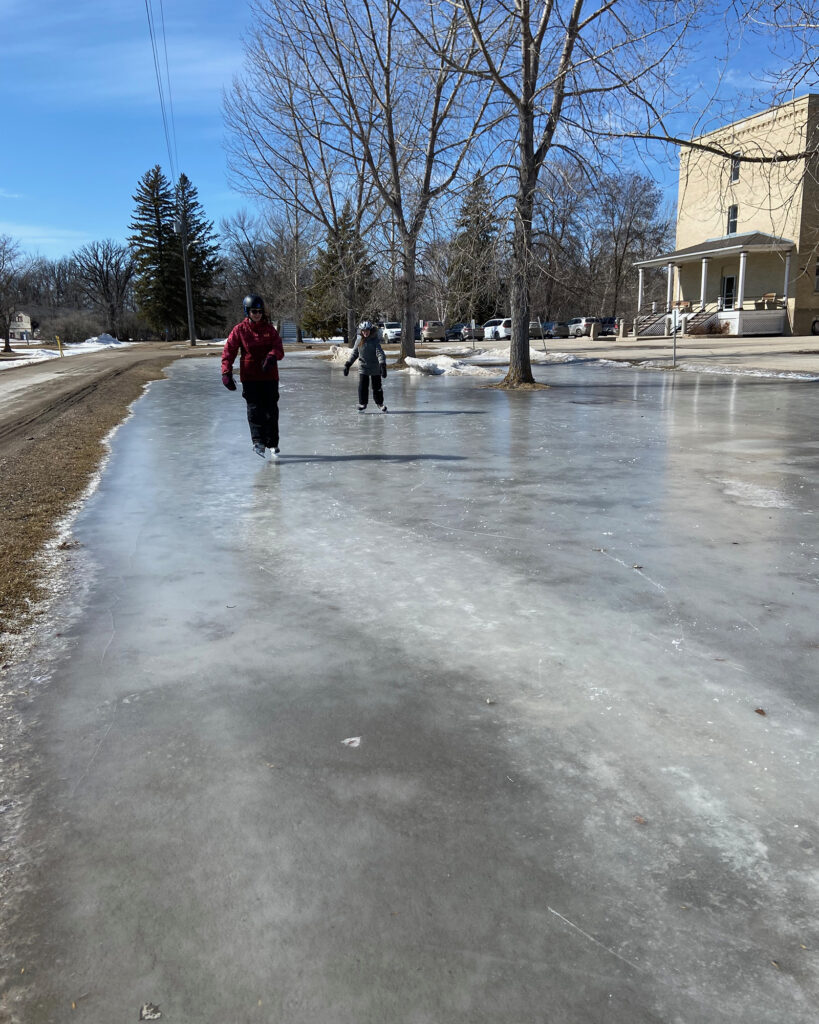
We did not have a stellar season for skating on the river this year because of fluctuations of temperature. We only got out a few times.
But thanks to the latest big thaw followed by some very cold temperatures over the last week, there are huge puddles that have frozen over perfectly and the children have been able to enjoy some bonus skating!
This skating patch is on a big boulevard of grass between two roads here on campus. Complete with trees and all.
(Not pictured are two picnic tables that are frozen in. The perfect place for donning one’s skates.)
Any other puddle/ditch/field/wild skaters out there?
@antonella.f.greco
March 23, 2024

“Children must have the Best Books.—One more thing is of vital importance; children must have books, living books; the best are not too good for them; anything less than the best is not good enough; and if it is needful to exercise economy, let go everything that belongs to soft and luxurious living before letting go the duty of supplying the books, and the frequent changes of books, which are necessary for the constant stimulation of the child’s intellectual life.” (Vol. 2 p. 279)
@tessakeath
March 24, 2024
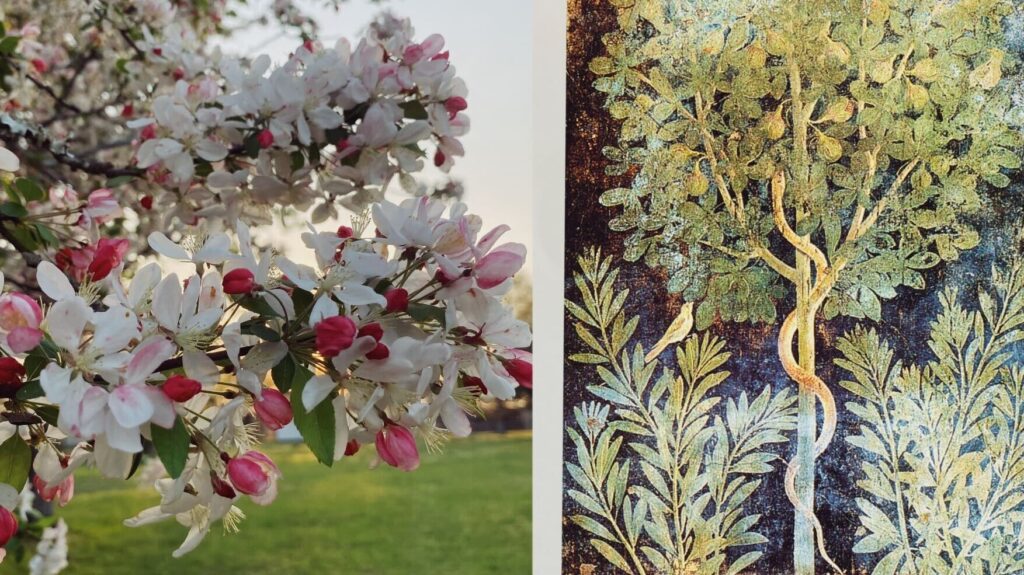
“You will not surely die,” the Serpent said to Eve. “For God knows that in the day you eat of it your eyes will be opened, and you will be like God, knowing good and evil.”
The temptation was irresistible. Man could be like God!
Today we share the recording that completes the set of poems in Volume V of “The Saviour of the World.” Charlotte Mason closes her poetry volume with the boldest, most mysterious, and most challenging poem of all.
Of course the devil was lying when he said that Eve would not die. But could it be that his deception went deeper?
In her poem “Ye shall be as gods,” Charlotte Mason develops the shocking, provocative thought: what if the serpent was offering Adam and Even something they already possessed? Read or listen here and share your thoughts in the comments below.
@artmiddlekauff